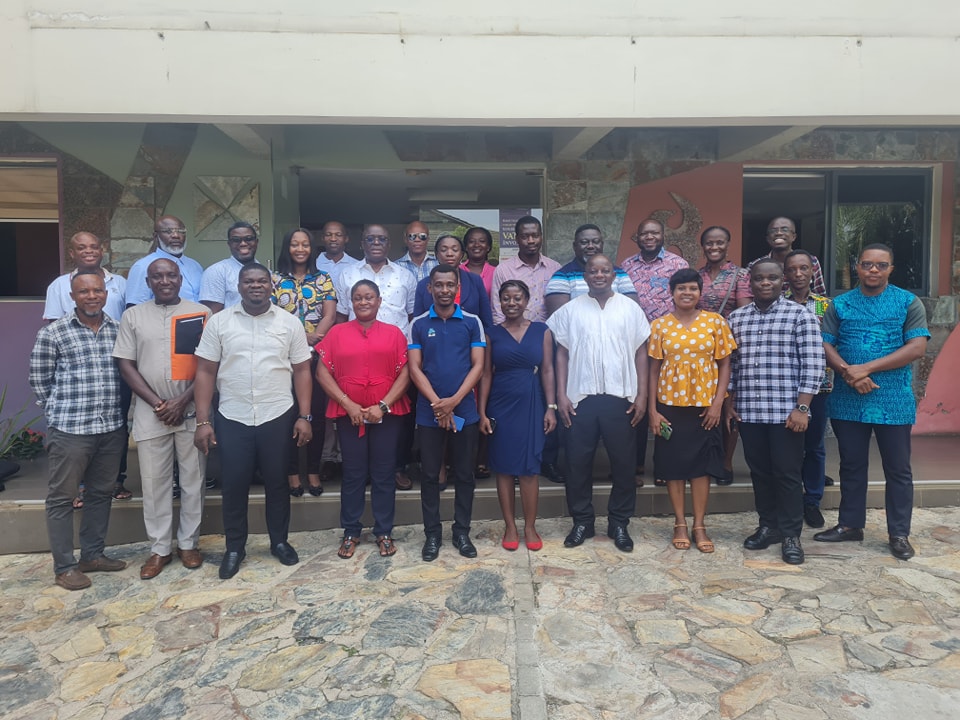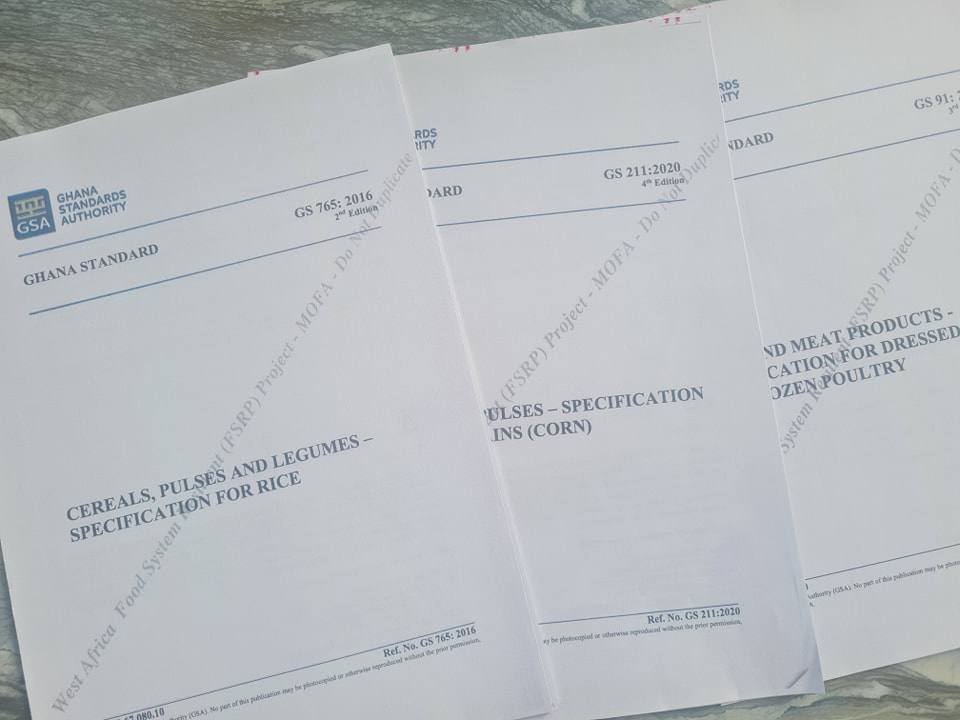FSRP & GSA CONDUCT COMMODITY STANDARDS REVIEWS (FOR RICE, MAIZE, SOYABEANS, COWPEAS, POULTRY)
The West Africa Food Resilience Project (FSRP) in conjunction with the Ghana Standards Authority has conducted a first phase of review of Commodity Standards for FSRP’s value chain commodities: rice, maize, soya, cowpea and poultry.
This review exercise was aimed at establishing an industry-wide consensus on acceptable food standards, as a resilience consolidation measure. Experts were drawn from different state regulatory organizations, including Ghana Standards Authority (GSA), Food and Drugs Authority (FDA), and Environmental Protection Agency (EPA); and key Directorates of the Ministry of Food & Agriculture (MOFA), mainly the Animal Production Directorate (APD), Veterinary Services Department (VSD), Policy Planning Monitoring and Evaluation Directorate (PPMED) and Plant Protection and Regulatory Services Directorate (PPRSD). Other experts were from the Ministry of Trade and Industry (MOTI), the Ghana Commodity Exchange (GCX), some private value chain actors in the aggregation and processing of the selected commodities.
The reviews targeted FSRP’s value chain commodities, ie., Rice, Maize, Soyabean and Poultry, with critical focus on general and specific requirements, in line with definitions, hygiene, contaminants, microbiological limits, physical and health characteristics, pesticide residues, mycotoxins, grading, criteria for conformity, sampling, testing, packaging, labelling and storage, among others.
FSRP, under the Ministry of Food and Agriculture (MOFA) is funded by the World Bank, and coordinated by ECOWAS, to mobilise national and sub-regional forces to sustainably reduce food insecurity in West Africa. Component 3 of the project focuses on the facilitation of market integration and trade, consolidation of food reserve systems and the development of strategic value chains.
FSRP’s Agriculture Economist, Mr. Allswell Emmanuel explained that as part of FSRP’s objective to improve food security and build resilience of food systems, the Project would be providing technical assistance to assess the state of the current product certification regime in the selected value chains, and develop an action plan for improving it, including improving standards for rice, maize, soya and poultry.
The experts were therefore tasked to review the existing standards to ensure that they are relevant to current and emerging trends (both locally and internationally) and to identify gaps, if any. They were also to critically consider the process for updating current standards, to be up to date with emerging trends, (both locally and internationally), and to develop sensitization and training programmes for on the updated standards and how to meet them.
The FSRP Project Coordinator, Mr. Osei Owusu Agyeman emphasized the need to widely disseminate the outcomes of the commodity standards review with value chain actors and the general public, to ensure mass awareness, appreciation and mutual compliance.
Mr. Nathaniel Brakoh, Scientific Officer of the Ghana Standards Authority explained that among other advantages, standards compliance, helps to improve risk management, leads to reduction of production and transaction costs and enhances competitive business positioning. He encouraged FSRP to consider procuring some standards documents from GSA for its project beneficiaries, to help drive adoption and dedicated compliance to standards.
The reviewed commodities are currently undergoing technical oversight protocols at GSA for possible amendements, ahead of approvals for industrial adoption.

Accra, April 9-11, 2024.


Leave a comment
Comments (0)
No comments yet. Be the first to comment!